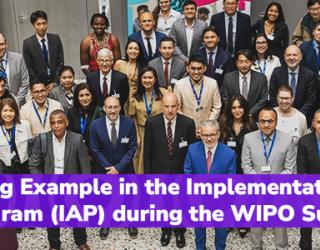SIC fines Suzuki for breaching the Colombian competition regime

The Superintendence of Industry and Commerce (SIC) of Colombia, as National Authority for Competition Protection, sanctioned SUZUKI MOTOR DE COLOMBIA (SUZUKI) with a fine of COP $2.280.240.000 (USD $558.880), after it was demonstrated that, at least, from 2011 to 2019, it limited the plural participation of bidders in public selection processes for the sale of motorcycles and preventive and corrective maintenance with supply of spare parts.
SANCTIONED PARTIES:
| COMPANIES | |||
|
1 |
SUZUKI MOTOR DE COLOMBIA S.A. | $2.280.240.000 | |
| INDIVIDUALS | |||
| NAME | FINE | POSITION | |
|
1 |
MÓNICA SÁNCHEZ ÁLVAREZ | $1.026.108 COP | Coordinadora de licitaciones y secretaria de Presidencia de Suzuki |
|
2 |
YOLANDA OSORIO LÓPEZ | $11.781.240 COP | Jefe del Departamento Jurídico de Suzuki |
|
3 |
MARTÍN RICARDO MANJARRÉS CABEZAS | $37.281.924 COP | Apoderado especial de Suzuki |
|
4 |
SHINOBU KATAOKA | $75.513.948 COP | Presidente de Suzuki de 2002 a 2018 |
|
5 |
CLAUDIA PATRICIA MAPURA LÓPEZ | $6.042.636| COP | Jefe del departamento de repuestos de Suzuki |
|
6 |
JUAN GUILLERMO PINZÓN CEBALLOS | $2.090.220 COP | Jefe de Servicios Técnicos de Suzuki |
|
7 |
LUIS HENRY DUQUE CARDONA | $114.012 COP | Jefe de Ventas de Motocicletas |
|
8 |
KENICHI UMEDA | $160.870.932 COP | Presidente y Representante Legal actual de Suzuki |
| TOTAL FINES |
$2.574.961.020 COP |
||
The administrative investigation was initiated as a result of a complaint filed by the VEEDURÍA DISTRITAL DE BOGOTÁ on September 16, 2015, in which it was detailed the possible existence of a restrictive practice of competition by SUZUKI in the abbreviated selection process of reverse auction FVS-SASI-004-2015 carried out by the FONDO DE VIGILANCIA Y SEGURIDAD DE BOGOTÁ D.C.
The Superintendence of Industry and Commerce found that SUZUKI implemented a business policy that prevented, both the agents that belonged to its distribution network in Colombia and third-party marketers, from freely participating in the contracting processes carried out by different public entities for the sale of motorcycles and preventive and corrective maintenance with supply of spare parts.
Indeed, it was proven that SUZUKI carried out a control over the members of its distribution network, reserving the possibility of deciding which of them could or could not participate in a certain selection process. Likewise, it carried out actions in order to exclude from said processes bidders who were not part of its distribution network.
In this regard, it should be noted that, taking into account that the object of the processes studied consisted exclusively of the sale of SUZUKI brand motorcycles and after-sales of maintenance and spare parts services, the "intra-brand" competition between the different suppliers of these goods and services was essential for contracting entities to obtain better prices.
Finally, understanding the importance of establishing a culture of compliance with the free economic competition regime and given that the sanctioned conduct was originated from the existence of a business policy, the Superintendence of Industry and Commerce ORDERED SUZUKI to design and implement a Compliance Program which must meet the conditions established in NTC 6378 of 2020: "Requirements for the establishment of good protection practices for free economic competition", and other actions that it considers necessary.
This, with the purpose of establishing relationships of trust with all its Stakeholders, keeping its business name and reputation high and facilitating the fulfillment of its strategic objectives and corporate purposes.



